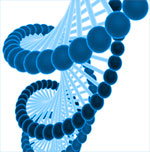
A rapid and less expensive diagnostic method for autism is likely to be developed by the researchers very soon. There are no acknowledged biomarkers for autism till date.
The researchers at Berzelii Centre and the Science for Life Laboratory in Uppsala, in collaboration with colleagues at Linnaeus University in Sweden and the Faculty of Medicine in Tehran, Iran managed to capture promising biomarkers with the help of mass spectrometry from a tiny blood sample.
A number of diseases are caused by the alterations in the protein inside and outside the cells of the body. But by studying the pattern of protein the in tissue and body fluids such alterations can be mapped which can provide us with much important information about major causes of disease.
Moreover, these protein patterns can also be used as biomarkers sometimes that can be used as a diagnostic or as a prognosticating tool to trace the development of a disease.
In the current study disruptions of the nervous system was the major focus of the current study where the researchers studied protein patterns in autism spectrum disorder (ASD).
A detailed protein analysis of blood plasma from children with ASD compared with a control group was performed by the scientists to identify the potential biomarkers (peptides or proteins) during the research.
The researchers succeeded in their effort of in identifying peptides consisting of fragments of a protein whose natural function is in the immune system, the complement factor C3 protein with the help of Using advanced mass spectrometric methods.
The research is based on blood samples from a limited group of children, but the results indicated the potential of the methodological strategy used by the researchers.
There is already a known relation between the protein and ASD, which further stimulates the findings, says Jonas Bergquist, professor of analytical chemistry and neurochemistry at the Department of Chemistry - BMC (Biomedical Centre) in Uppsala.
The hope is that this new set of biomarkers will prove to be a reliable tool for blood-based diagnosis tool.
The details of the study have been published in the journal Nature Translational Psychiatry.
-With inputs from ANI
|
|
Read More: Iran | National Physical Laboratory | Shopping Centre Mayapuri | Civic Centre Bhilai Mdg | Gannavaram Centre | Kalidindi Centre Nd Bo | Rtc Bus Complex Centre | Agricultural Research Centre | World University Centre | Postal Training Centre | Chirakadavu Centre | Karikkattoor Centre | Extension Trg Centre | City Centre | Killing Centre | Paomata Centre Edbo | Christan Centre Haochong Edbo | B.r. Centre | Asc Centre(n) Gaya | Postal Traning Centre


Comments: